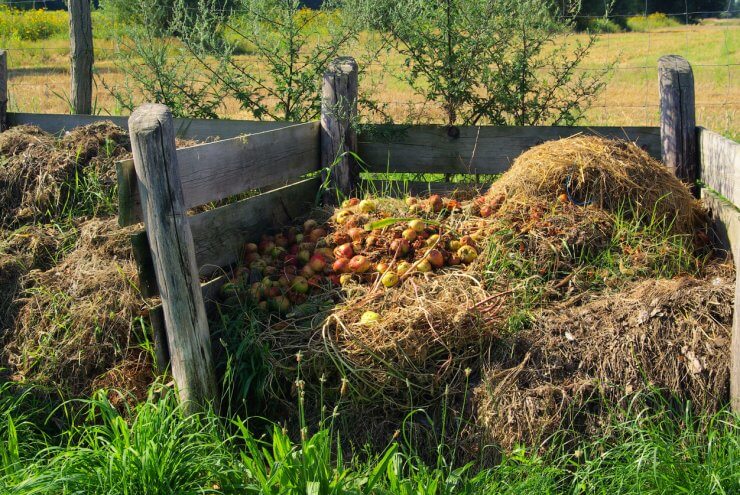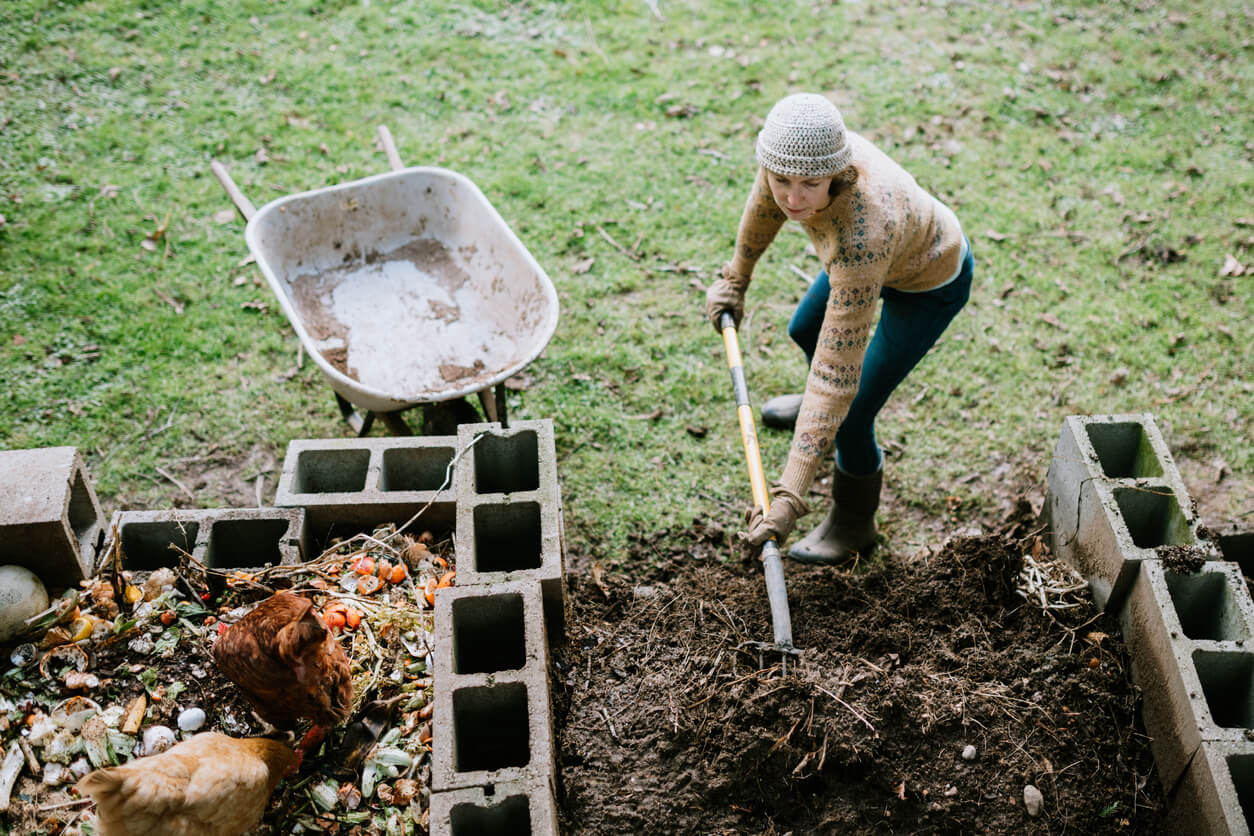
If you’ve read much about compost, you know it shouldn’t have too much of an odor. And if you’ve been composting for more than five minutes, you also know that sometimes, no matter what you do, your compost smells like ammonia or sulfur. If you haven’t experienced this “lovely” phenomenon, you either will soon, or you’re fortunate.
Don’t worry. It happens to everyone. It doesn’t mean you’re a bad composter. What it does mean is that something is off. What is it that’s off? What’s making your compost smell like the worst beings of the underworld are here to wreak havoc upon the earth?
Discover 7 top tips for growing, harvesting, and enjoying tomatoes from your home garden—when you access the FREE guide The Best Way to Grow Tomatoes, right now!

Here’s why your compost smells like ammonia, sulfur, or a party of skunks
One of the primary reasons compost smells like ammonia or rotten eggs or is generally foul is that there isn’t enough oxygen in the pile. The Los Angeles County Department of Public Works Environmental Programs Division points out that there are several reasons for these odors. However, the solution to all of them is essentially to get more oxygen in there.
Whether your compost pile is too wet, too compact, or has too much green material, you may be getting into anaerobic conditions, giving you that distinct nose-turning aroma. Incidentally, the same thing can happen with mulch. Luckily, the solution in both cases is pretty simple.
First, grab a clothespin for your nose. Okay, maybe not. In all seriousness, though, if your compost smells like ammonia and you’re worried that the odors will bother you while you’re correcting the issue, you do have some options.
Grab a bandana, scarf, or a facemask (since we all have those handy these days) and give it a good spritz with water. The damp cloth will help capture many of the volatile compounds that smell so bad. That might not completely protect you from smelling the ammonia or sulfur, but it will help.
Now that you’re ready, let’s head out to the compost pile.
We know it’s anaerobic decomposition causing the odors, so one of the first and easiest things to do is simply give the compost pile a good mix with a shovel, rake, or garden fork. That will help get some air into the center of the pile and mix your brown and green materials a little more. Mixing the pile also helps when your compost smells like ammonia because it’s too compacted.
Another reason your compost might smell so unwelcoming is that it’s too wet. This doesn’t happen often, but it’s worth considering if you notice the smell after a period of rain or otherwise damp conditions. The solution here is to add dry material and mix it in, so there isn’t so much concentrated moisture.
One final reason that your composts smells like ammonia is that the ratio of brown and green material is too heavily skewed toward green. There are some differing ideas out there about what that ratio should be. I generally go with a 50/50 mix. However, some people suggest a mix that’s three parts brown to one part green.
Here’s the thing. No matter what your mix is, if your compost smells like ammonia, you have too much green, and the mixture is off. Now, it could be that the entire pile needs more brown material. Or …
You might just need to mix it up. Even if you have the perfect blend of brown and green materials, it’s entirely possible to have a pocket or two that’s not mixed well. And that’s where your odor may be originating.
So, to sum it all up, if your compost smells like ammonia, start by giving the pile a good stir. If that doesn’t work, add some more brown material. Give it a day or two, and you should notice the smell is much more neutral.
Have you had issues with your compost smelling “off?” How did you deal with the issue?
Looking for some help with your compost? Here are a few tools we like.
- Miracle-Gro’s Large Dual-Chamber Composter
- Fiskar’s D-Handle Garden Fork
- ReoTemp Compost Thermometer
Note: Food Gardening Network contains links to affiliate websites, including Amazon and Rakuten Affiliate Network, and we may receive a commission for any eligible purchases made by you through links on this page. Any reviews are based on honest reviews of the products.
Discover 7 top tips for growing, harvesting, and enjoying tomatoes from your home garden—when you access the FREE guide The Best Way to Grow Tomatoes, right now!





Drop ash that i ash from leaves or wood into your compost.
Brown can also be plant based but they are dried out, such as sawdust, straw, wood chips, paper, dried out plant clippings, dried out brown leaves from a tree after they have lost their color, or dried small branches aka sticks from a tree or other. A Google search for brown compost material is helpful
Ok I am probably not the only one that doesn’t know the difference between green and brown materials. I suspect green are plant based such as peels, grass cuttings and such like. But what are brown materials?